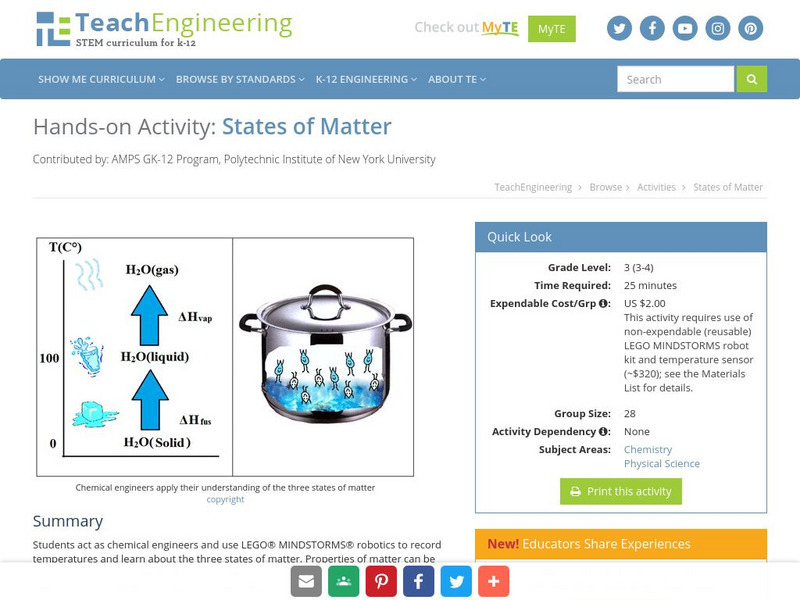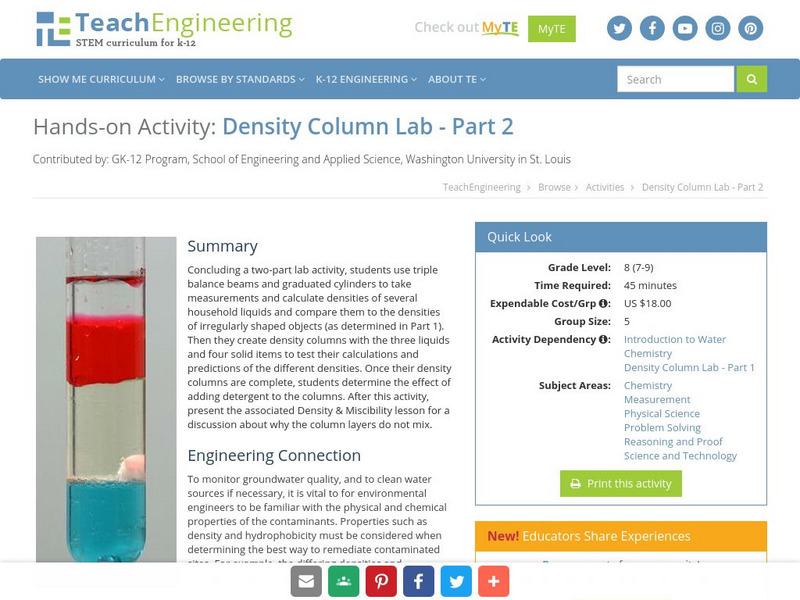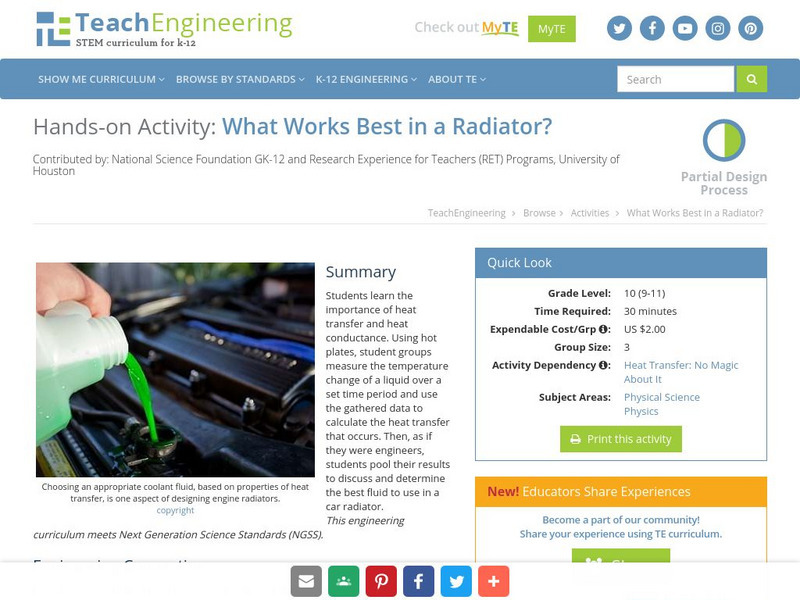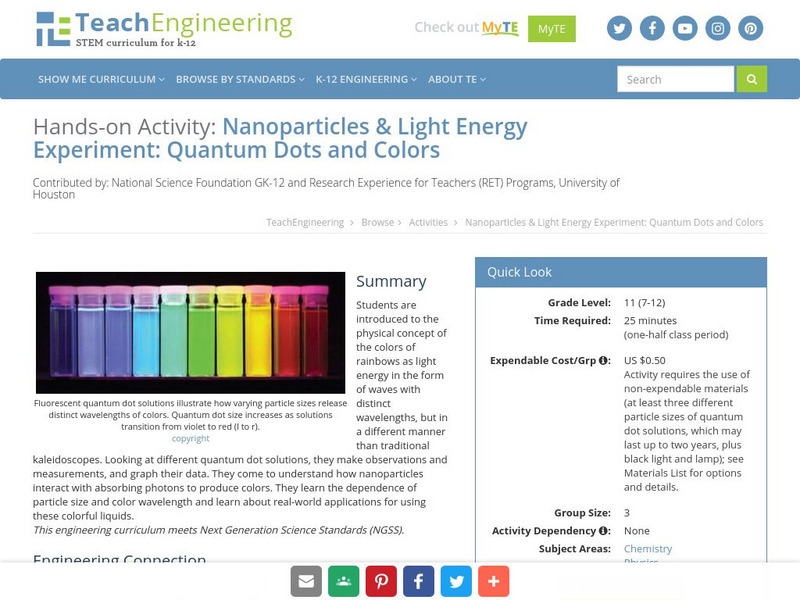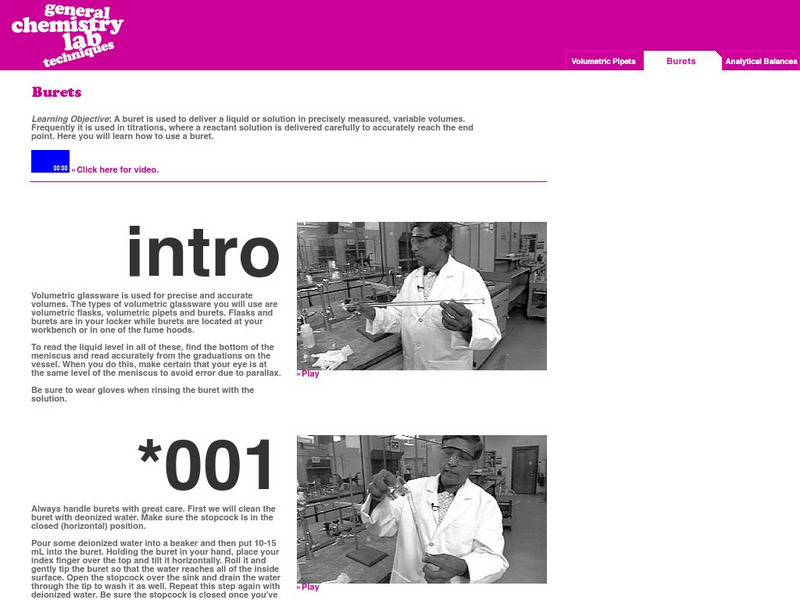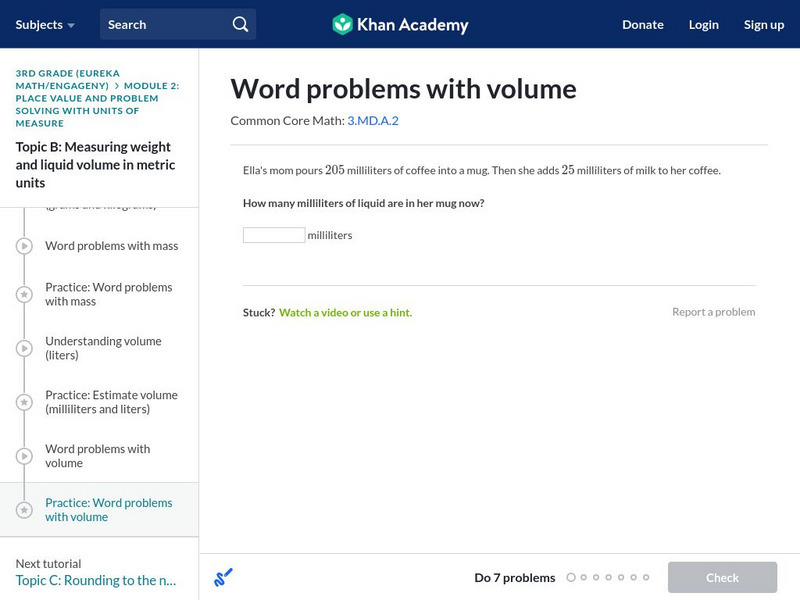Wolfram Research
Wolfram Science World: United States System of Liquid and Dry Measures
Unlike the British Imperial system, the United states uses two different systems, one for liquid volumes and one for dry volumes. Confusingly, these two systems share the units of quart and pint, which have different values. This site...
TeachEngineering
Teach Engineering: States of Matter
Students act as chemical engineers and use LEGO MINDSTORMS NXT robotics to record temperatures and learn about the three states of matter. Properties of matter can be measured in various ways, including volume, mass, density and...
Math Is Fun
Math Is Fun: Introduction to Us Standard Units
Students learn how to measure things using US Standard Units. Liquids, mass, length, and temperature are explored. Practice problems are included.
Alabama Learning Exchange
Alex: Souper Scooper
This hands-on, inquiry based lesson is an extension of the AMSTI Science Module, Solids and Liquids. Students use nonstandard units to measure beans in a soup mix. Students predict how many beans will be in a scoop. Students group beans...
Dan Satterfield
Dan's Wild Wild Weather Page: Humidity
Use this site to find out how humidity works and perform some activities related to humidity.
TeachEngineering
Teach Engineering: Make That Invisible! Refractive Index Matching
Students determine the refractive index of a liquid with a simple technique using a semi-circular hollow block. Then they predict the refractive index of a material (a Pyrex glass tube) by matching it with the known refractive index of a...
TeachEngineering
Teach Engineering: Density Column Lab Part 2
Concluding a two-part lab activity, students use triple balance beams and graduated cylinders to take measurements and calculate densities of several household liquids and compare them to the densities of irregularly shaped objects (as...
TeachEngineering
Teach Engineering: What Works Best in a Radiator?
Students learn the importance of heat transfer and heat conductance. Using hot plates, student groups measure the temperature change of a liquid over a set time period and use the gathered data to calculate the heat transfer that occurs....
TeachEngineering
Teach Engineering: Quantum Dots and Colors
Students are introduced to the physical concept of the colors of rainbows as light energy in the form of waves with distinct wavelengths, but in a different manner than traditional kaleidoscopes. Looking at different quantum dot...
TeachEngineering
Teach Engineering: Surface Tension
Surface tension accounts for many of the interesting properties we associate with water. By learning about surface tension and adhesive forces, students learn why liquid jets of water break into droplets rather than staying in a...
Curated OER
Educational Technology Clearinghouse: Clip Art Etc: Cyathus
A Greek and Roman liquid measure, containing one-twelfth of the sextarius, or .0825 of a pint English. The form of the cyathus used at banquets was that of a small ladle, by means of which the wine was conveyed into the drinking-cups...
Yale University
Yale University: General Chemistry Lab Techniques: Burets
Tutorial shows proper procedure for handling a buret and using this piece of laboratory equipment to measure liquid volume. View accompanying video full-length [18:00] or in segments.
Dartmouth College
Dartmouth College: Chem Lab: Scanning Spectrometer
The scanning spectrometer measures absorbance vs. wavelength for liquid samples. Directions on how to use this instrument are provided here.
Physics4kids
Physics4 kids.com: Friction Basics
This resource provides a brief overview of friction. Its' affects on solids, liquids and gases is described with diagrams. An explanation of how friction is measured is included in the discussion. An online quiz can be used to check your...
Khan Academy
Khan Academy: Arithmetic Word Problems With Volume
In this exercise, students practice arithmetic word problems with volume. Students receive immediate feedback and have the opportunity to get hints and try questions repeatedly. CCSS.Math.Content.3.MD.A.2 Measure and estimate liquid...
Curated OER
Friction Is a Force That Moves in an Opposite Direction to Movement.
This resource provides a brief overview of friction. Its' affects on solids, liquids and gases is described with diagrams. An explanation of how friction is measured is included in the discussion. An online quiz can be used to check your...
Curated OER
Science Kids: Science Images: Pipette
This picture show two pipettes, used in laboratories to measure or transfer small amounts of liquid.



